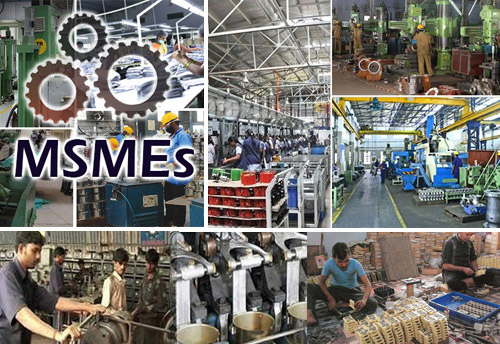MSMEs face existential crisis, revenue to fall a fifth, says Report
Updated: Jun 16, 2020 09:35:21am

MSMEs face existential crisis, revenue to fall a fifth says Report
New Delhi, Jun 16 (KNN) The 5% contraction in the Indian economy wrought by the Covid-19 pandemic – will significantly hurt Micro, Small and Medium Enterprises (MSMEs, said Crisil Research.
The pain will radiate as India Inc heads towards ~15% decline in revenue and ~25% fall in earnings before interest, taxes, depreciation and amortisation (Ebitda).
For MSMEs, the fall in revenue will be steeper at 17-21%, while Ebitda margin will shrink 200-300 basis points to 4-5% as weak demand gnaws away gains from lower commodity prices.
''A sharp decline at the operating level will also impact creditworthiness, aggravating the liquidity stretch these units have been grappling with, particularly on the working capital front,'' said Crisil.
The challenges would be the hardest for micro enterprises, which account for 32% of the overall MSME debt, and are facing material stress in terms of revenue growth, Ebitda margins and working capital stretch.
Previous downturns have shown that micro and small enterprises are unable to manage transient working capital challenges as easily as their large and medium peers. To that extent, the measures announced by the Ministry of Finance and the RBI, nudging banks and other institutions to lend more, will help them tide over tapered cash flows.
The bigger issue, however, is demand, which needs to revive for growth to improve sustainably.
“The current facilitations may not have the heft to crank up demand in the near term because fiscal stimulus is limited and only to vulnerable households. It is critical that the demand curve is yanked steeply northwards, especially in discretionary products and services. A three-pronged strategy is essential now: one, improve the sentiment around job security for formal and informal workers to boost consumption. Two, hasten implementation of the Rs 3 lakh crore Aatmanirbhar scheme to ensure flow of liquidity to MSMEs continues,'' said Says Amish Mehta, Chief Operating Officer, CRISIL.
''Three, and most importantly, lenders have to go beyond traditional credit processes because they have to play a seminal role in recovery. That will mean closer interactions with MSMEs to understand underlying drivers of business, and using innovations such as operational scorecards, digital platforms and alternative data for monitoring and underwriting,” he added.
''Revenue growth of MSMEs in the real estate engineering, procurement and construction segment could almost halve with demand sliding even as rising costs, supply chain disruptions and labour issues exert severe pressure on margins,'' Crisil added.
The Crisil also indicated that lower utilisation and partial absorption of BS-VI price hike could erode margins of auto-component MSMEs this fiscal despite lower raw material prices. Working capital is highest for MSME sectors that have higher B2B clientele or dominant export share, such as gems & jewellery, ready-made garments and real estate contractors.
The assessment is also borne out by a survey conducted by CRISIL covering ~450 MSMEs across crucial upstream sectors such as construction-real estate, auto components and textiles-ready, and downstream sectors such as FMCG distributorships and auto dealerships. The survey highlighted sector-specific challenges.
In upstream sectors, inventory build-up and stretched receivables highlight the need for incremental working capital in the next 1-2 months. Given the varied pace of revival, the worst affected ones, such as construction, auto-component manufacturers and auto dealers, do not expect a rebound before fiscal 2022. While some MSMEs remain optimistic about the upcoming festive season, FMCG distributors expect de-growth this fiscal due to consumer down trading and supply-side challenges.












